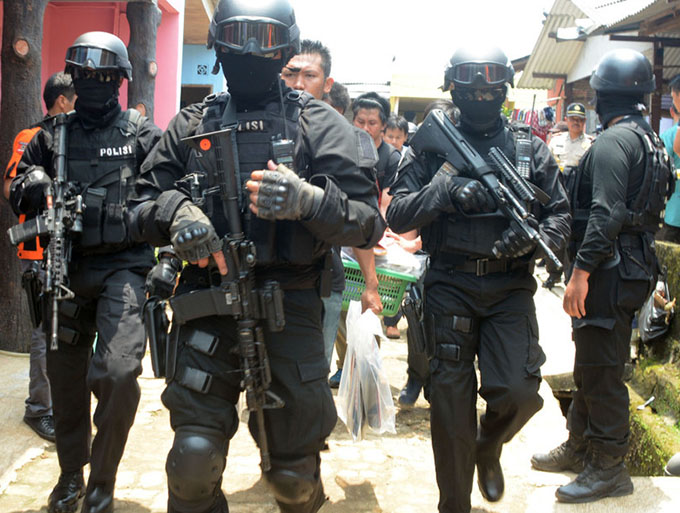
By Edo Karensa in Jakarta
International human rights advocacy group Human Rights Watch (HRW) has called on Indonesia’s House of Representatives to reject a draft bill that will revise the 2003 Anti-Terrorism Law.
The revision is believed to include clauses involving the revocation of citizenship for convicted terrorists and a new set of definitions of what constitutes a “radical group”.
The government’s proposed amendment to the Anti-Terrorism Law is included on this year’s list of prioritised legislation in the House.
The amendments were proposed in the wake of the January 14 terrorist attack in Central Jakarta, which left eight people dead, including four of the attackers. The radical Islamic State (IS) movement has claimed responsibility for the attack.
In response to the attack, authorities have complained that law enforcers currently lack the legal backing to act swiftly after they are able to identify possible terrorist threats.
Chief Security Minister Luhut Pandjaitan had previously said the amendments would include the confiscation the passports of Indonesian citizens suspected of joining or fighting for IS, adding that the government would remove terror suspects’ citizenship.
Phelim Kine, deputy Asia director at HRW, said Indonesia’s legitimate security concerns don’t merely give the government a green light to override fundamental human rights, including the stripping of citizenship.
‘Keep people safe’
“The Indonesian government should ensure that measures to keep people safe don’t trample on basic rights such as freedom of expression and association,” Kine said.
The New York-based human rights watchdog said the government has also not provided any details on whether an amendment to strip Indonesians of their citizenship would apply only to dual or naturalized citizens, whether the stripping of citizenship would only be a possibility following a criminal conviction, or be subject to some form of judicial review.
According to United Nations secretary general’s report in 2013:
“[i]nternational law … obliges states to provide an opportunity for the meaningful review of nationality decisions, including on substantive issues.” It provides that if citizenship is revoked, “lodging an appeal should suspend the effects of the decision, such that the individual continues to enjoy nationality – and related rights – until such time as the appeal has been settled.”
In the Anti-Terrorism Law amendments, Pandjaitan has also mooted criminalising “insult” to the state such as a refusal to “recognise the Republic of Indonesia.” The law revisions will also include the official definition of “treason” to include those who join “radical groups” or declare “caliphates” abroad.
The term “radical groups” is too broad and could encompass any number of groups that do not necessarily commit or intend to commit violence, Kine argued.
“The government response to the January 14 terror attacks in Jakarta should not include overbroad laws that will unjustifiably restrict the rights and freedoms that Indonesians have fought so hard for to achieve,” he said, adding that counterterrorism laws that stifle free speech and peaceful protest won’t uproot terrorism – they’ll help it grow.
In the immediate aftermath of the January 14 attack, police raids in several regions across the country have since netted a dozen alleged militants, eight of whom are believed to have direct links to the string of bomb blasts and shooting incidents in the capital.
The government has set a target for the law amendments to be ready by the middle of this year, to be able to better protect its people against the threat posed by violent extremists.















































